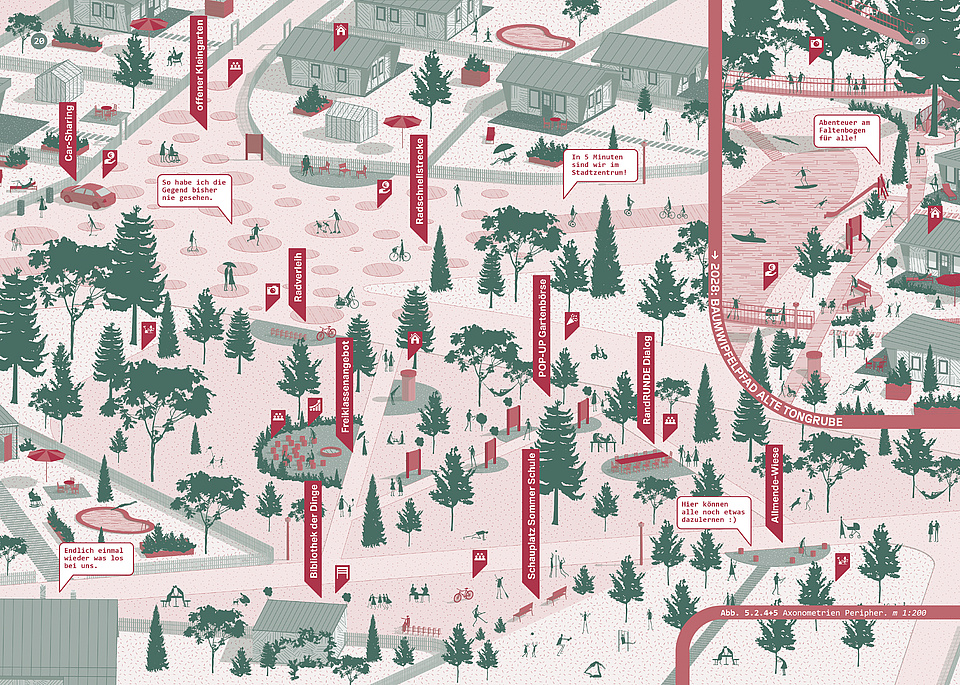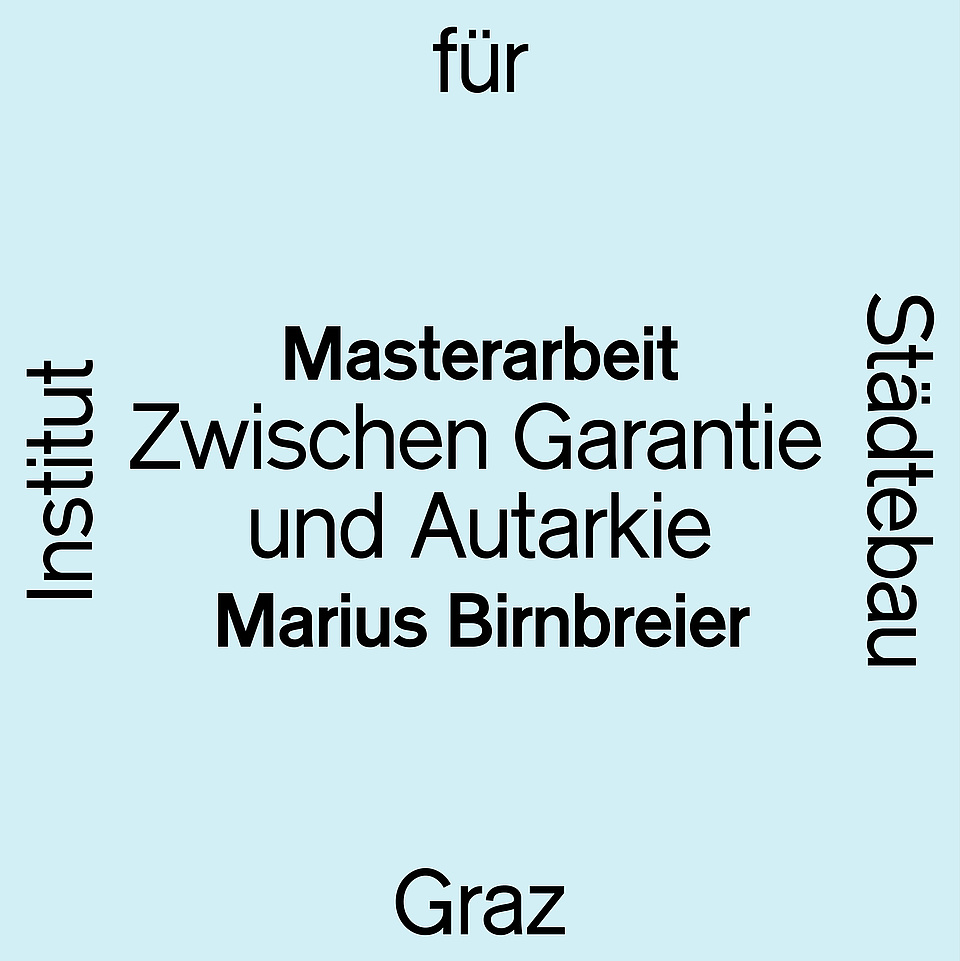Master's thesis Marius Birnbreier: Between Guarantee and Autarky

Between Guarantee and Autarky
Spaces of Self-Responsibility as a Contribution to Territorial Justice in Peripheral Communities
The diploma thesis Between Guarantee and Autarky explores the significance of spatial self-responsibility in the context of territorial justice. Using the example of Lusatia in eastern Germany, it illustrates transformation processes in a concrete manner. The thesis critically examines the established narrative of growth and decline as well as the polarization between urban and rural life. In light of an aging population and increasing peripheralization of rural areas, the potential of alternative lifestyles is reconsidered, with a focus on social engagement and participation. The aim is to strengthen spatially equitable and participatory approaches to planning.
Through collaboration with local stakeholders, theory and practice are integrated into the methodology, fostering strong visions for structural transformation. In the case of Weißwasser in Lusatia, “everyday spaces” such as allotment gardens or garage complexes often dominate the urban landscape but remain overshadowed by large-scale transformation projects. Achieving resilient networks requires a paradigm shift in planning, moving toward flexible approaches and enhanced local participation.
The findings of this research are grounded in three examples of spatial and conceptual strategies. An interdisciplinary workshop conducted on-site further bridges the gap between planning theory and lived daily realities, enriching the discourse on spatial justice.
